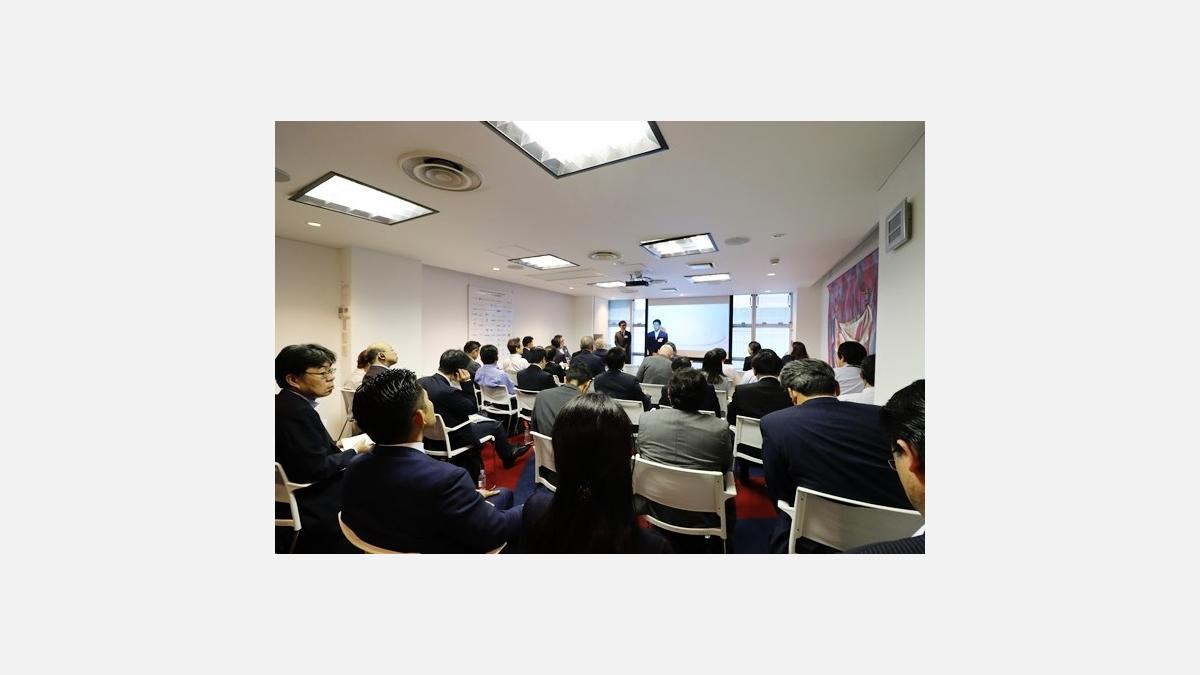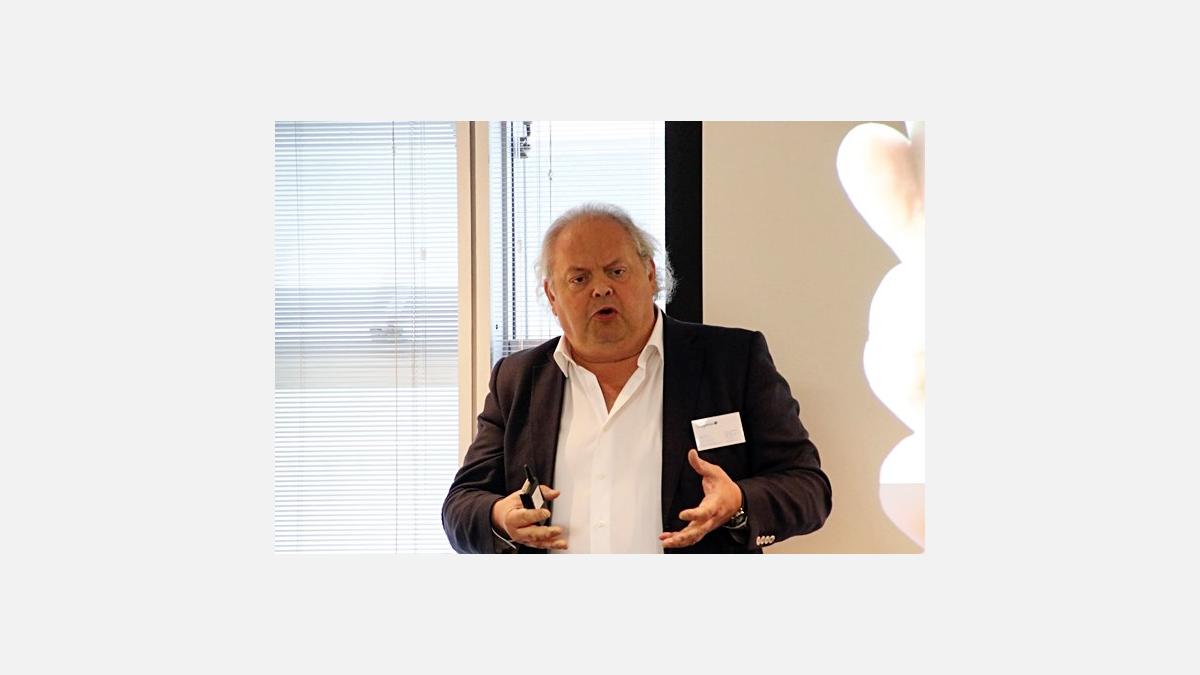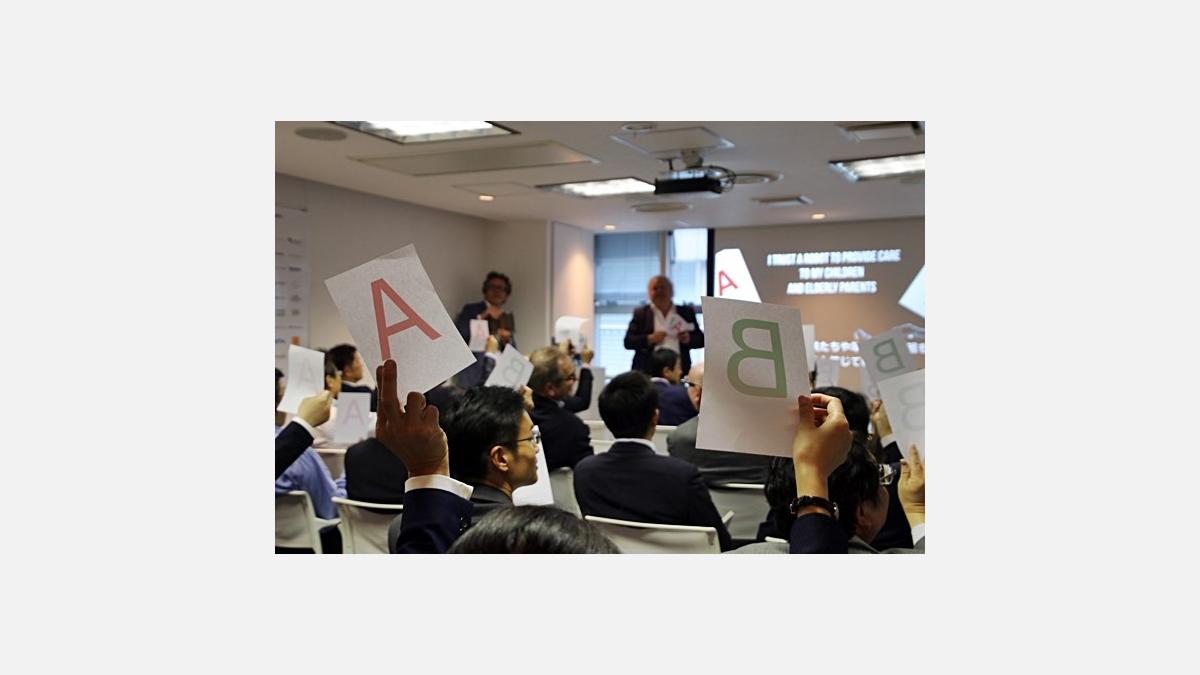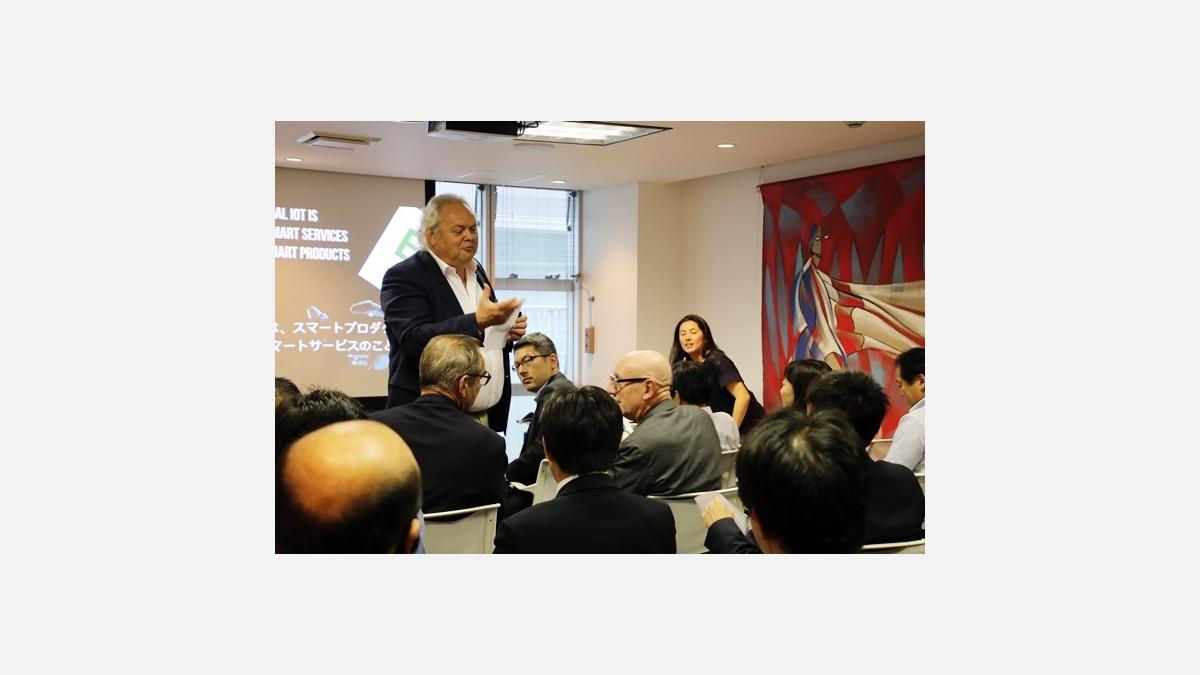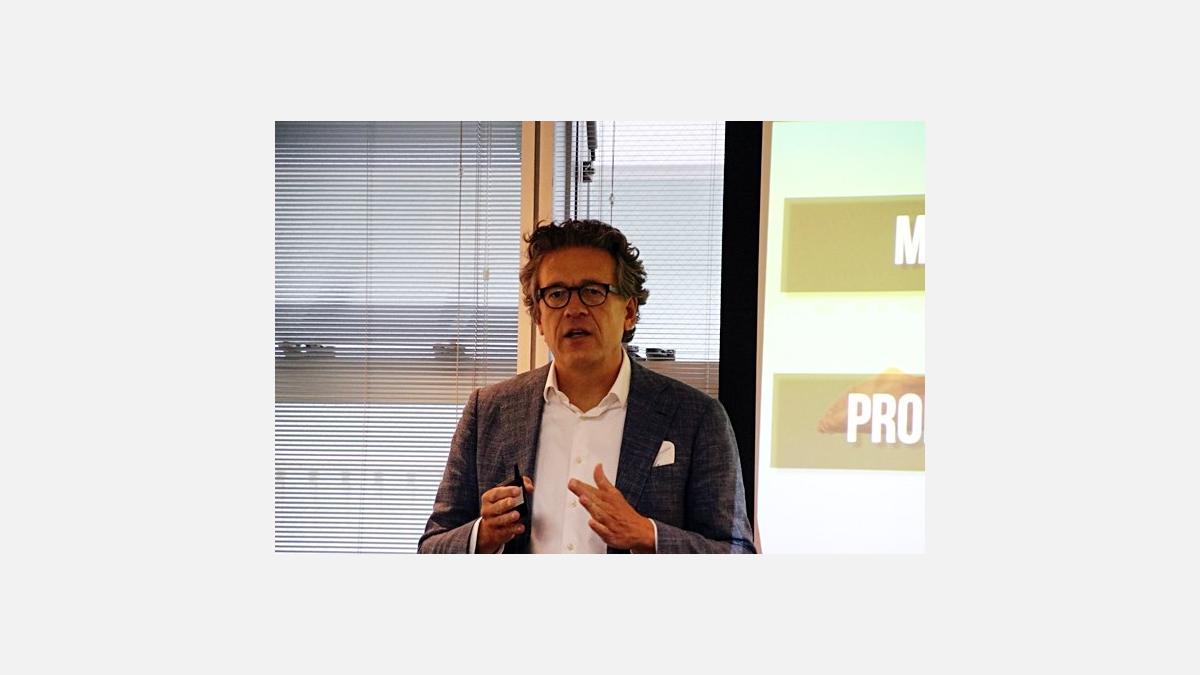Bilans d’évènement
Digital Happiness Summit 2018
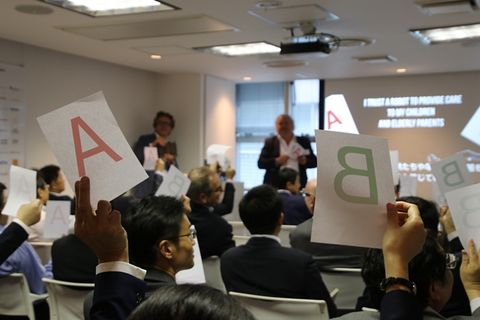
Last June 1st the French Chamber organized in cooperation with Capgemini a special event entitled “Digital Happiness Summit 2018”.
Happiness is becoming a keyword when talking about the future of technology and its applications. Technology empowers organizations to understand customers’ emotions and impact their happiness. What is the main goal of the products and services and how do they contribute to the “digital happiness” of the customer?
To answer to these questions, two experts in the field, Michiel Boreel, CTO at Sogeti, and Menno van Doorn, Director of the Sogeti Research Institute for the Analysis of New Technology (VINT), came to the Chamber to discuss how technology and happiness can work together. Sogeti is the Technology and Engineering Services Division of Capgemini.
Michiel Boreel started the seminar with a presentation about “Algorithmic business and the pursuit of digital happiness”
Algorithmic business is the use of algorithms to improve business decisions or process automation. If technology is a mean to bring more happiness to our lives, algorithms are crucial to study and understand the kind technology users need. As such, it is near impossible to avoid them in the advanced state of digitalization of our societies.
Michiel Boreel gave an overview of algorithms with examples showing how they are used nowadays, embedded in many products, apps or services which aim at making users’ daily life easier. One must not forget that technology is considered “human-centric” as it has first been created to serve people.
Technology has evolved drastically in the last decade to center itself around “platforms”, as services are getting more and more prevalent over physical products. As one example among others, “AirBnB, the largest accommodation provider, owns no real estate”.
Stemming from algorithms, the next step in technological innovation these past years is most definitely AI. Mentioning AlphaGo Master, a computer program who beat Go world Champion Ke Jie in 2017, Michiel Boreel explained the exponential evolution of AI and how machines are learning to improve themselves.
Finally, as much as it is supposed to be “human-centric”, the fast evolution of technology brings questions and one could wonder about its influence on humanity as a whole. Seeing how fast AI is learning, could it become a threat?
During the second presentation entitled “In Pursuit of Digital Happiness/In Code We Trust”, Menno van Doorn delved more into the actual definition of happiness.
Even though Japan doesn’t rank high in the World Happiness Ranking 2018 (54th), the subject of happiness is as trendy here as it has been abroad these past years with the publishing of an increasing number of articles and books about the subject. As such, new terms such as digital happiness have gained in popularity as well.
While happiness can be described as the fulfillment of hope, digital happiness can be defined as “the degree to which a person views digital technology as contributing positively to the experience of positive emotions”. Digital is supposedly helping us improve our decision-making in order to reach happiness. However, if technology has greatly improved in the past decade, it still “lacks consciousness”. But is intelligence without consciousness still intelligence?
It goes without saying that, far from the ideal of digital happiness, undesired side effects to digital technologies have been noticed. Addiction is one of them. By trying too much to fulfill our needs, digital technologies can also create dependency. The autoplay feature of videos catering to our interests on online media platforms make it hard not to watch them, at the expense of our time and sometimes our health.
One of the biggest challenges arising from this observation is: how to manage technology’s improvements and evolution to enjoy its benefits without falling into excesses? Technology can be a tremendously useful tool, but reflecting on its use and limits is primordial. Menno van Doorn concluded by reminding the audience that “we have to be the guardians of our own happiness”.
The audience were able to ask questions and give their own opinions on the subject during and after the presentations. The conversations initiated were then carried on to a lively networking session concluding the evening.
Organized with the kind cooperation of

